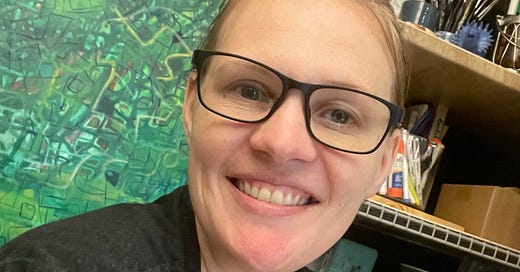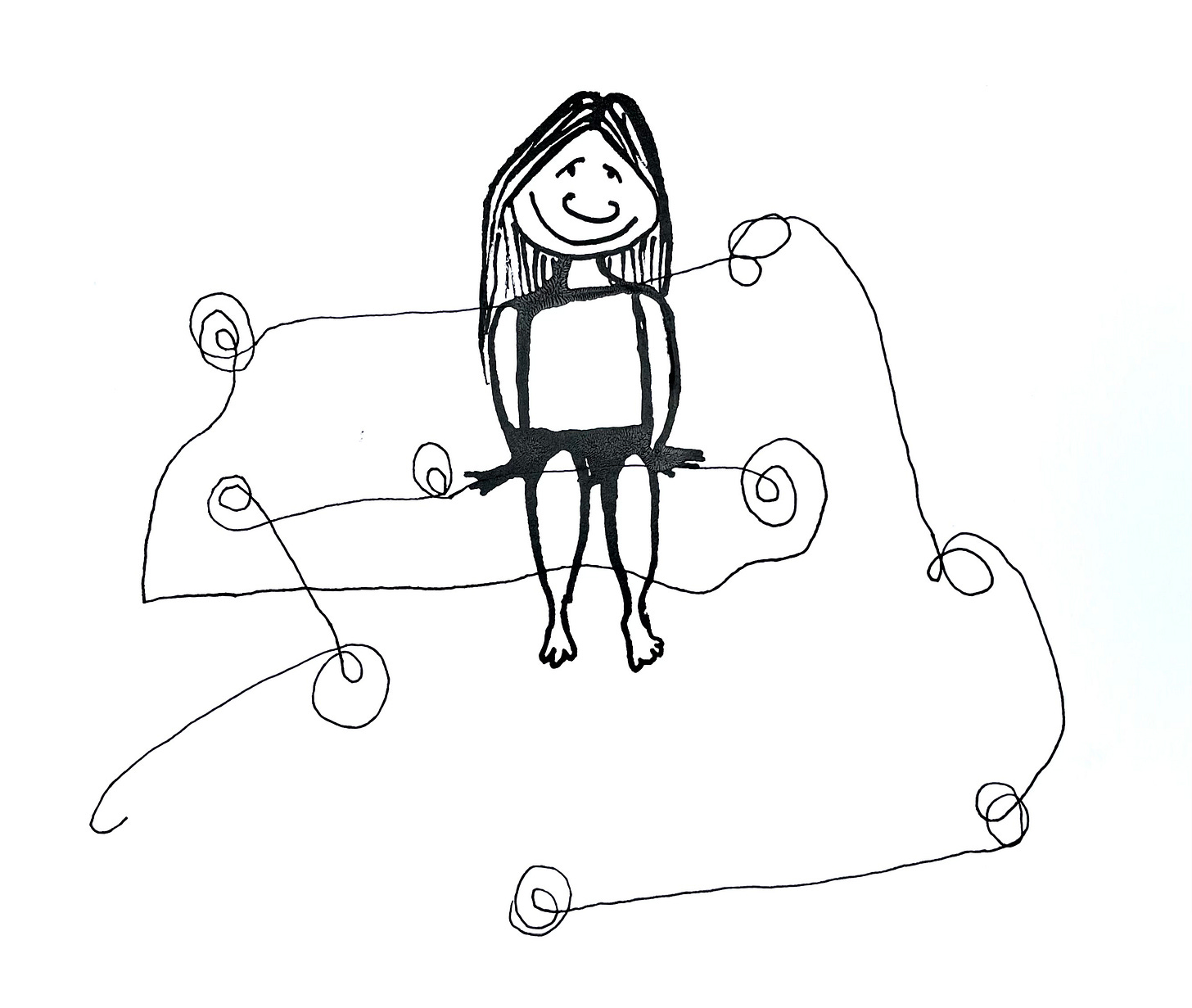I thought it might be fun to lend out this space from time to time for other autistics to introduce themselves and tell us about what they like to do with their time. In this first installment, I’ve invited Jackie Schuld to tell us what she does - art therapy.
Jackie holds an Art Therapy Credentials Board Certification (ATR-BC), the Registered Expressive Arts Therapist (REAT) certification, and a Licensed Professional Counselor (LPC) certification. She’s earned a Master’s degree from Arizona’s Prescott College and a Bachelor’s degree from the University of Florida.
Here she is. Her article is below. Take it away, Jackie.
What I Do as an Autistic Art Therapist
Most people think therapists do one thing: provide therapy.
That’s true for some therapists, but my love of learning, drive to write, and multitude of interests means my work extends far beyond the therapy room. Since I own my private practice, I can choose how I spend my time. Here’s a breakdown of what I do:
Write About Autism
I love writing about autism, neurodivergence, and psychology-related topics. I typically write 1-3 essays a day because I love it so much. I then share these essays on Medium.
Recently, I’ve also been writing a book about late-identified autism called “Life as a Late-Identified Autistic.” It will be published in January 2024. I’m writing it because I want a clear, well-organized book that:
Concisely explains autism
Is relatable
Enables newly identified autistics to understand themselves
Can be given to family and friends who want to understand late-identified autism better.
Monthly Therapy for Newly Identified Autism
I provide therapy for newly identified autistics or those who suspect they might be autistic. Thanks to the internet and my registration as an expressive arts therapist, I can meet with people from anywhere in the world. Some of the things we do in therapy include:
● Exploring if someone is autistic
● Determining all of their autistic characteristics
● Developing strategies to work with their autistic minds
● Exploring coping skills for meltdowns and other challenging aspects
● Navigating difficulties with friends and family
● Discussing how to shape their lives so they can thrive in a neurotypical world
I meet with clients once a month for 60 minutes. During our meetings I also give them art and writing activities to work on between our sessions.
Create Art
This might seem like an odd thing for me to list as part of my life as an autistic therapist, but please don’t forget I’m an ART therapist. That means I need to keep myself immersed in my craft … not to mention that I love it! I’m currently playing a lot with bamboo sticks, ink, and watercolor.
Reading… A Lot
I’m constantly reading about topics related to autism, psychology, and my clients. I love absorbing new information. Sometimes this is through articles and journals, and many times it is through books. I primarily read about psychology because it is my passion. Currently I’m reading the book “Rest” along with some other autistic books.
Workshops, Conferences, Oh My!
I present at workshops, conferences, college classes, and more, I talk about autism, art therapy, and life as a therapist. It’s my goal to help therapists become more educated about autism. I hope my upcoming book about autism will also help.
Private Practice Consultations
It’s taken a lot of hard-earned experience to get to where I’m at in my private practice. As an autistic, I also structure my private practice very differently than most private practices. I center my autistic needs … otherwise I will burn myself out of the field. I now help other therapists who want to do the same.
Small Autism Groups
I want to connect with more autistics in ways that are both fun and comfortable. So I’ve designed some small groups for just that purpose. I host three monthly virtual groups that are open to everyone:
Autistics Making Art (we come together to work on our art projects)
Autistic Therapists & Coaches (we talk about our experiences and ask questions of each other)
Late-Identified Autism Question & Answer Session (anyone can ask me a question)
Rest and Rejuvenation
Who wants a tired therapist? No one. More importantly, I hate the feeling of being tired. Therapy is deep work that requires a lot of energy. I ensure that I get lots of sleep, naps, and playful rest (meaning time for all my passions).





